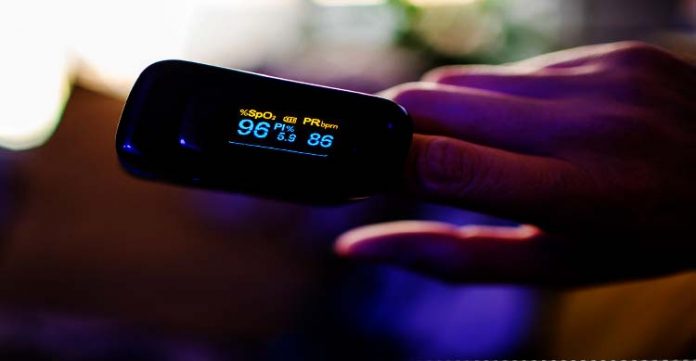The devices used extensively by healthcare professionals and households too during this pandemic for estimating the blood-oxygen values– Pulse Oximeters- can give wrong readings during certain situations- warns the United States’s FDA (Food and Drug Administration).
Pulse oximeters remained to be used across the globe by doctors to ascertain the need for hospitalization in covid-19 patients. However, the FDA now ruled that this might not yield the correct result every time and should be utilized for neither diagnosing nor ruling out the prevalence of the disease in any person.
Instead of these devices, other ways and indicators should be relied on, the FDA said, mentioning these as- bluish discolorations of the face, lips or nails, an increased pulse rate, restlessness and discomfort.
ALSO READ: UK announces Covid vaccination contract extension with Wockhardt
The oximeter could be helpful in measuring the blood-oxygen levels sometimes but not always as it has its limitations, the US body added, giving a list of circumstances that can alter the readings. These factors include poor blood circulation, skin pigmentation, skin thickness and temperature.
The US Center for Disease Control and Prevention reviewed its guidelines and updated the same for healthcare professionals this week by evaluating data gathered from various studies that researched the accuracy of the pulse oximeter in people with darker skin.
According to a study published recently in the New England Journal of Medicine, the device can give inaccurate values in darker skin toned people.
ALSO READ: Over half of Delhi has had covid, inching towards herd immunity- latest sero survey
“The most current scientific evidence shows that there are some accuracy differences in pulse oximeters between dark and light skin pigmentation,” the U.S. Food and Drug Administration said in a statement.
Earlier in January, the global health body, World Health Organization (WHO) had listed pulse oximeters as an effective entity in measuring blood-oxygen values and identifying patients of covid-19 who need to be admitted in hospitals in view of their low levels.
ALSO READ: Hyderabad teen dies after getting anesthesia administered for surgery
However, under the fresh guidelines, it might not be helpful to rely on these devices to rule out the need for hospitalization and even basic levels during these tough times when these readings are of utmost value, given the disease affects the respiratory system the most.


